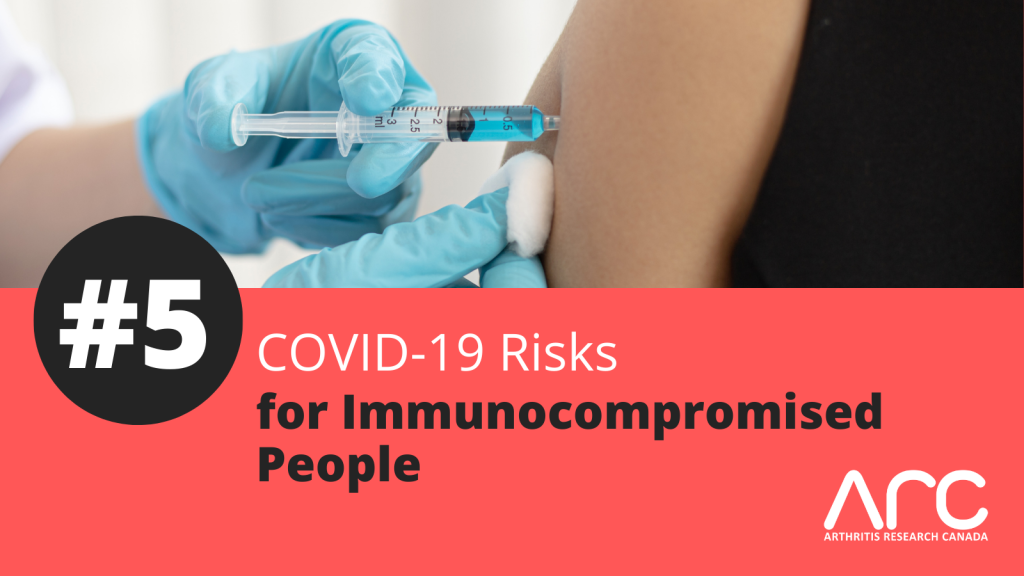
Arthritis Research Canada/Arthrite-recherche Canada’s scientific team is tackling challenges faced by over 6 million Canadians living with arthritis – challenges that can interfere with everyday life. Through 100+ research projects, they are finding ways to prevent arthritis, diagnose people earlier, manage symptoms, provide new and better treatments and improve overall quality of life. We are excited to share #5 on Arthritis Research Canada's list of 10 Research Projects to Watch in 2023 this week.
#5 COVID-19 Vaccines Boosters in Immunocompromised Rheumatic Diseases (COVBIRD)
As successive waves of COVID-19 continue to occur and new variants emerge, people with systemic autoimmune rheumatic diseases worry about their risk of infection and whether multiple doses of vaccines are safe or might cause flare-ups of their disease. One of the most vulnerable group of patients are people treated with rituximab, a drug that depletes cells producing antibodies. Previous studies showed they have a poor response to mRNA types of vaccines, putting them at high risk of severe COVID-19 despite vaccination.
Ongoing research is needed on the safety and effectiveness of multiple doses of COVID vaccines in people with auto-immune diseases taking drugs that suppress the immune system. Testing new types of vaccines, that are not mRNA vaccines, are essential in order to find the right type of vaccine that works for people taking medications such as Rituximab.
This study will compare the safety and effectiveness of booster doses of COVID-19 vaccines in people with systemic autoimmune disease treated with rituximab. The study hypothesis is that effectiveness is better when the booster dose is a vaccine from a different group than the one used for primary immunization (mix-and-match approach).
287 patients with different types of systemic autoimmune disease treated with rituximab who received three doses of a mRNA COVID-19 vaccine will be enrolled in this multicenter clinical trial. These patients will be offered a 4th dose of a non-mRNA COVID-19 vaccine (a protein subunit vaccine, Novavax NUVAXOVID) or a fourth dose of the mRNA vaccine. The two types of boosters will be compared for their ability to induce a good immune response to SARS-CoV2 and the duration of the protection (i.e., effectiveness), and whether the boosters cause flares of the auto-immune disease (i.e., safety)
This study is key to informing public health authorities on the advantage of using specific vaccine types to achieve satisfactory vaccination in the most vulnerable patients with autoimmune rheumatic diseases.
Click here to learn more about this research study.